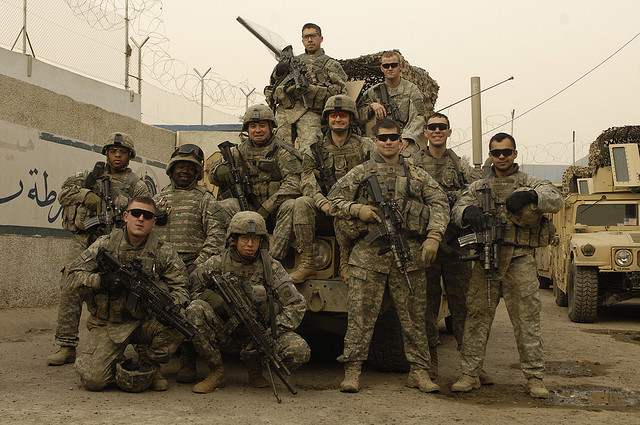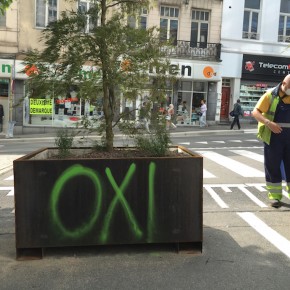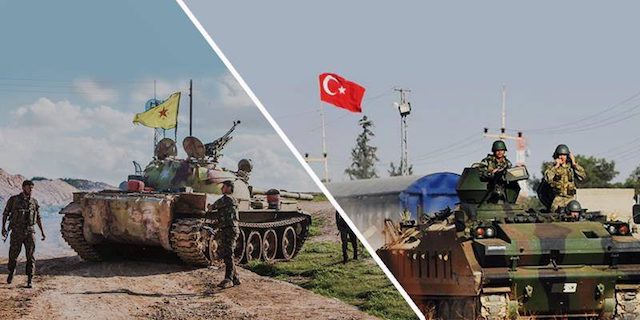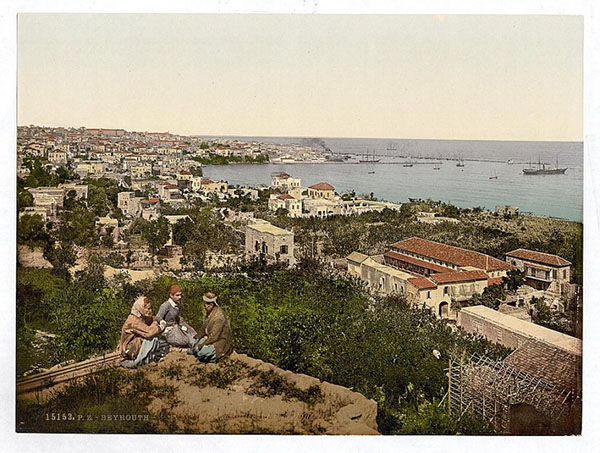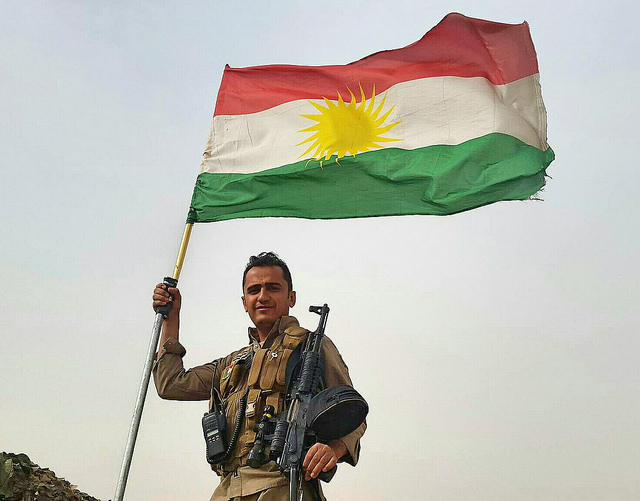Although never in Baghdad for long at a time, I generally had occasion to spend four or five days there every other month. The life in any city is complex and interesting, but here it was especially so. We were among a totally foreign people, but the ever-felt intangible barrier of color was not present.
For many of the opportunities to mingle with the natives I was indebted to Oscar Heizer, the American consul. Mr. Heizer has been twenty-five years in the Levant, the greater part of which time he has spent in the neighborhood of Constantinople. The outbreak of the war found him stationed at one of the principal ports of the Black Sea. There he witnessed part of the terrible Armenian massacres, when vast herds of the wretched people were driven inland to perish of starvation by the roadsides. Quiet and unassuming, but ever ready to act with speed and decision, he was a universal favorite with native and foreigner alike.
With him I used to ferry across the river for tea with the Asadulla Khan, the Persian consul. […] Coffee and sweets of many and devious kinds were served, with arrack and Scotch whiskey for those who had no religious scruples. The Koran’s injunction against strong drink was not very conscientiously observed by the majority, and even those who did not drink in public, rarely abstained in private. Only the very conservative, and these were more often to be found in the smaller towns, rigorously obeyed the prophet’s commands.
It was pleasant to smoke in the shade and watch the varied river-craft slipping by. The public bellams plied to and fro, rowed by the swart owners, while against them jostled the gufas (built like the coracles of ancient Britain) a round basket coated with pitch. No Anglo-Saxon can see them without thinking of the nursery rhyme of the “wise men of Gotham who went to sea in a tub.” […] The natives used long round-bladed paddles, and made good time across the river. Crossing over in one was a democratic affair, especially when the women were returning from market with knots of struggling chickens slung over their shoulders.
Asadulla Khan’s profile always reminded me of an Inca idol that I once got in Peru. Among his scribes were several men of culture who discoursed most sagely on Persian literature; on Sadi and Hafiz, both of whom they held to be superior to Omar Khayyam. I tried through many channels to secure a manuscript of the “Rubaiyat,” but all I succeeded in obtaining was a lithograph copy with no place or date of publication; merely the remark that it had been printed during the cold months. I was told that the writings of Omar Khayyam were regarded as immoral and for that reason were not to be found in religious households. […]
My best friend among the natives was a Kurdish chief named Hamdi Bey Baban. His father had been captured and taken to Constantinople. After living there a number of years in semicaptivity he died, by poison it was said. Hamdi was not allowed to return to Kurdistan until after he was a grown man and had almost forgotten his native language. He spoke and read both French and English. Eventually permission was granted him to live in Baghdad as long as he kept out of the Kurdish hills, so he set off by motor accompanied only by a French chauffeur. […]
His existence in Baghdad had been subject to sudden upheavals. Once he was arrested and convoyed back to Constantinople; and just before the advance of the British his life was in great danger. Naturally enough he had little love for the Turk and staked everything on the final victory of the Allies.
He intended writing a book on the history of his family, in which he was much interested. For material he was constantly purchasing books and manuscripts. In the East many well-known histories still exist only in manuscript form, and when a man wishes to build up a library he engages scribes and sends them to the place where a famous manuscript is kept with an order to make a copy. In the same way Hamdi Bey had men busied transcribing rare chronicles dealing with the career of his family—extant in but one or two examples in mosques. He once presented me with a large manuscript in Persian in which his family is mentioned, the mention taking the form of a statement to the effect that seventeen of them had had their heads removed! […]
I had a number of good friends among the Armenians. […] With one family I dined quite often–the usual interminable Oriental feast varying only from the Arab or Turkish dinners in a few special national dishes. All, excepting the aged grandmother, spoke French, and the daughters had a thorough grounding in the literature. Such English books as they knew they had read in French translations. The house was attractively furnished, with really beautiful rugs and old silverware. The younger generation played bridge, and the girls were always well dressed in European fashion.
Whence the clothes came was a mystery, for nothing could have been brought in since the war, and even in ante-bellum days foreign clothes of that grade could never have been stocked but must have been imported in individual orders. The evenings were thoroughly enjoyable, for everything was in such marked contrast to our every-day life. It must be remembered that these few Armenians were the only women with whom we could talk and laugh in Occidental fashion. […]
As soon as we got a foothold in the Kurdish Hills, Major E.B. Soane, whose Through Mesopotamia and Kurdistan in Disguise is a classic, was sent up to administer the captured territory. His headquarters were at Khanikin, twenty-five miles from Kizil Robat and but a short distance from the Persian frontier. One morning during the time that I was stationed in that district I motored over to see him. It was a glorious day. The cloud effects were most beautiful, towering in billows of white above the snow peaks, against a background of deepest blue.
The road wound in and out among the barren foot-hills until suddenly as I topped a rise I saw right below a great clump of palm-trees, with houses showing through here and there, the whole divided by a lovely river bestridden by an old seven-arch bridge. I picked my way through the narrow streets, scattering ragged Kurds right and left; past part of the covered bazaar, until I came to a house with a large courtyard, thronged with a motley array of Kurdish irregulars, armed with every sort of weapon. It was there that Soane administered his stern but practical justice, for he thoroughly understood how to handle these men.
The district had suffered fearfully, for it had been occupied in turn by Turk and Russian, and then Turk again, before we took it over, and the unfortunate natives had been pillaged and robbed mercilessly. Thousands starved to death. When I was at Deli Abbas ghastly bands of ragged skeletons would come through to us begging food and work. Soane turned a large khan on the outskirts of the town into a poorhouse, and here he lodged the starving women and children that drifted in from all over Kurdistan. It was a fearful assemblage of scarecrows.
As they got better he selected women from among them to whom he turned over the administration of the khan. They divided the unfortunates in gangs, and supervised the issue of dates on which they were fed. Such as were physically able were employed in cleaning the town. The Kurds are a fine, self-respecting race and it was easy to understand Soane’s enthusiasm for them.
In Baghdad you lived either in the cellars or on the housetops. The former were called serdabs. A large chimney, cowled to face the prevailing wind, served for ventilation, and on the hottest days one was cool and comfortable. We slept on the roofs, and often dined there, too. Since the town was the General Headquarters of the Expeditionary Force, one was always sure to meet many friends. A comfortable and well-run officers’ club was installed, as well as warrant officers’ and enlisted men’s clubs. […]
Occasionally I would go to one of the Arab theatres. The plays were generally burlesques, for the Arab has a keen sense of humor and greatly appreciates a joke. Most of the puns were too involved for me to follow, but there was always a certain amount of slap-stick comedy that could be readily understood. Then there was dancing, as a whole monotonous and mediocre; but there was one old man who was a remarkable performer, and would have been appreciated on any stage in the world.
The topical songs invariably amused me, they were so universal in spirit. The chorus of one which was a great hit ran: “Haido, haido, rahweni passak!” “I say, I say, show me your pass.” There had been much trouble with spies and every one was required to provide himself with a certificate of good conduct and to show it on demand. It was to this that the song referred.
Captain C.G. Lloyd was my companion on many rambles among the natives. He had been stationed in Burma and India for many years, and was a good Persian scholar. Like every one who has knocked about to any extent among native peoples, his career had not been lacking in incident. I remember on one occasion asking him why it was that he never joined me in a cup of coffee when we stopped at a coffee-house. He replied that he had always been wary of coffee since a man with him was poisoned by a cup which was intended for him.
I always looked forward to a trip to Baghdad, for it gave me a chance to mingle in a totally different life from that which daily surrounded me, and temporarily, at least, forget about the war in which the world was plunged. Still, the morning set to leave invariably found me equally glad to shove off once more into the great expanses of the desert.
Excerpt from War in the Garden of Eden (1919). Photograph courtesy of DVIDSHUB. Published under a Creative Commons License.
